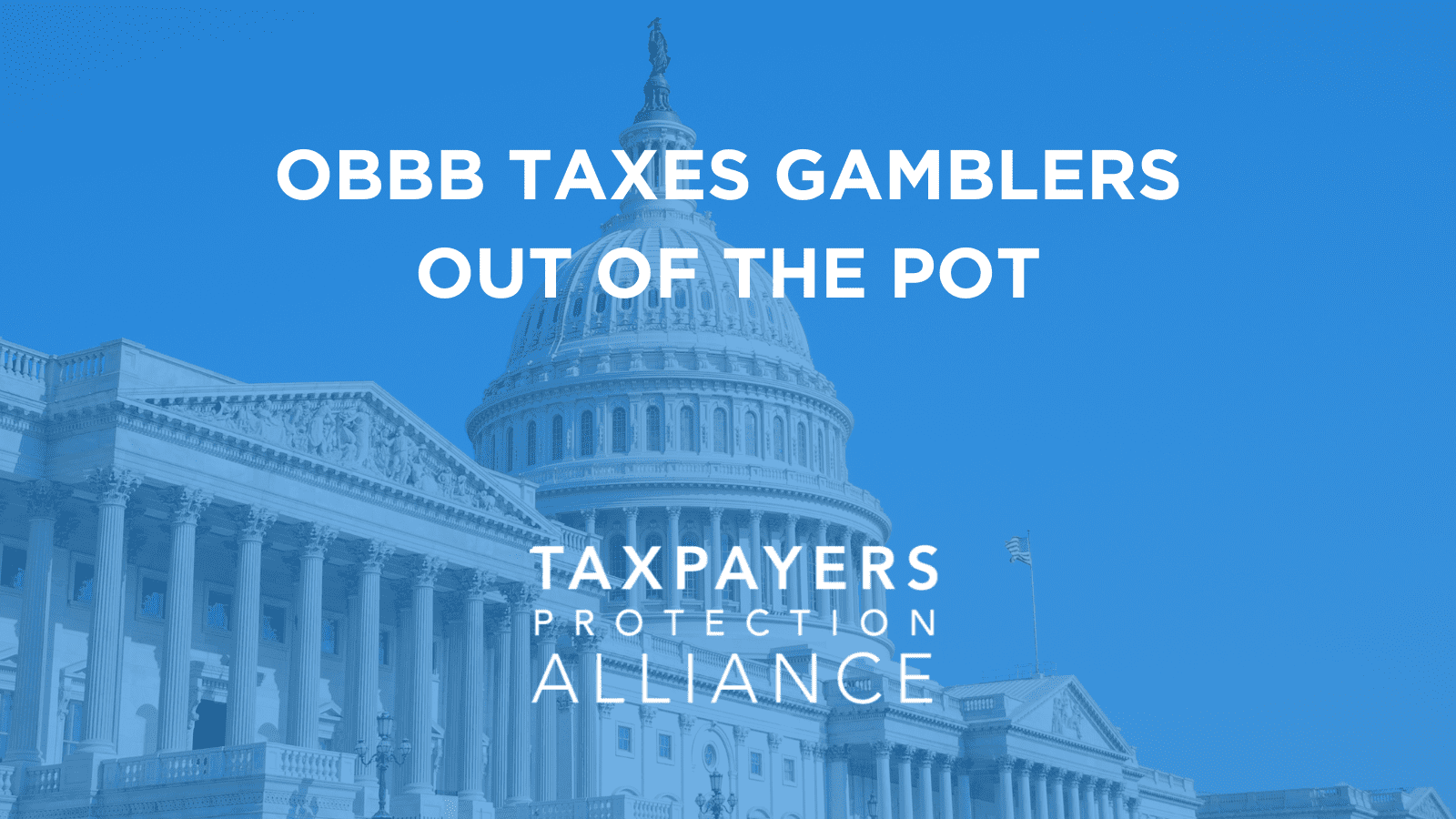
OBBB Taxes Gamblers Out of the Pot
Dan Savickas
July 10, 2025
Fifteen years ago, then-House Speaker Nancy Pelosi (D-Calif.) dropped a quote that has echoed through the halls of Congress (and the country) ever since. Speaking on the healthcare reform bill (what would become known as Obamacare) under consideration, the Speaker said, “We have to pass the bill so that you can find out what is in it.” The remark was rightly derided by many on the political right as the embodiment of Washington’s lack of transparency.
However, it seems not everyone has learned their lesson. After Congress passed the “One Big Beautiful Bill” (OBBB) last week, the American people started to learn more about what was in the legislation. They weren’t alone. Even influential senators seemed confused when shown some of the actual provisions for which they’d just voted.
Perhaps the most striking example is a gambling tax that was inserted into the final text at the very last minute. The language of that provision changes the way tax liability on gambling winners is calculated.
Before OBBB, the law was very simple. Someone who gambled on sports or at a casino was taxed on their net winnings (how much they win minus how much they lose). However, the OBBB changed the tax to one on gross winnings, with only 90 percent of losses being tax deductible. This might seem like a rather minuscule difference. In reality, this has big implications for anyone engaged in any sort of recreational or professional gambling.
For example, under current law, if someone ended up grossing $20,000 off of winning bets, but also lost $20,000 in losing bets, they would owe no taxes since they had zero net winnings. Under OBBB, however, their gross winnings are now considered taxable, with only 90 percent of their losses (in this case, totaling $18,000) being deductible. So, despite making no money, this gambler now owes taxes on an imaginary $2,000 worth of income.
At a larger scale, that kind of math becomes a serious problem and would threaten casinos and sportsbooks across the country. Many gamblers have taken to social media saying such a change could drive them offshore. This will hurt American businesses and may end up having the opposite revenue impact as intended.
However, key lawmakers seem positively dumbfounded as to how such a nonsensical tax got included in the final text of the OBBB. Sen. Chuck Grassley (R-Iowa), a key member of the Senate Finance Committee and the Senate President Pro Tempore said, “If you’re asking me how it got in there, no, I don’t know.” Sen. John Cornyn (R-Texas), also a member of the Finance Committee went even further, saying, “I’m not sure what [this tax] does.” It seems Sens. Grassley and Cornyn – who both voted for final passage of OBBB – had to follow former Speaker Pelosi’s advice of passing the bill to find out what was in it.
This provision on gambling – combined with taxes on remittances to foreign friends and relatives and university endowments – represents yet another tax hike included in a bill marketed as a tax cut. To be sure, the extension of the Tax Cuts and Jobs Act was indeed a major win for taxpayers. However, it was possible to do so without these hidden taxes. This is the cost of insisting a massive piece of landmark legislation be passed by an arbitrary July 4th deadline purely for marketing purposes.
Thankfully, the effort to repeal some of the more harmful provisions are underway. Rep. Dina Titus (D-Nev.) and Sen. Catherine Cortez-Masto (D-Nev.) have both introduced bills (the FAIR BET Act and the FULL HOUSE Act respectively) to revert taxation on gambling winnings to pre-OBBB levels. If neither bill is passed into law, the harmful change will go into effect January 1, 2026.
It is vital for Congress to work to dull the harms caused by rushing a very complex process through to the finish line. The FAIR BET Act and the FULL HOUSE Act are great places to start.
